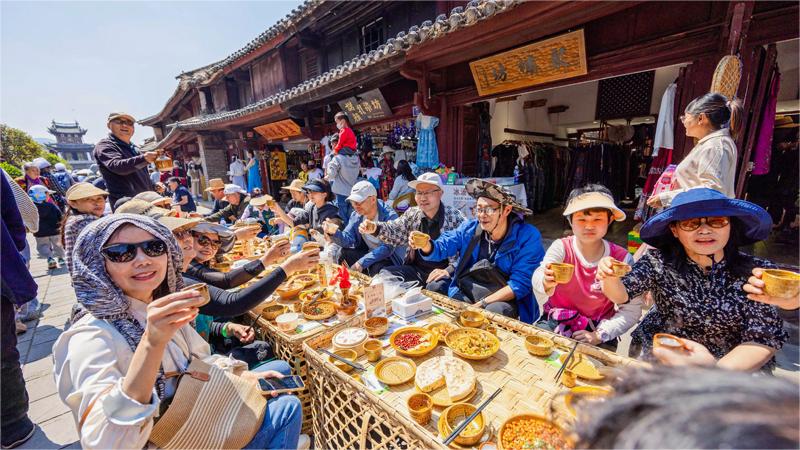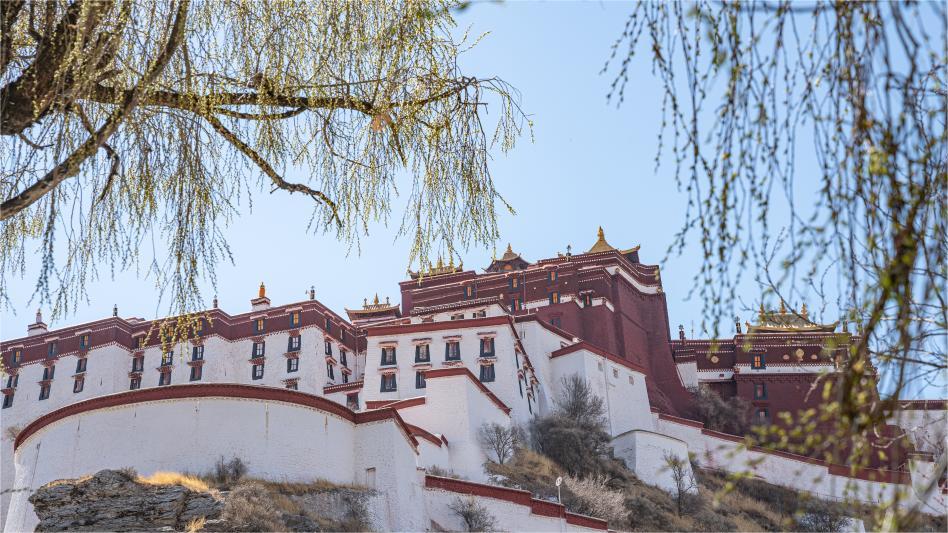Fishing village in China's Guangxi thrives on B&B industry
A high-end B&B hotel converted from old houses in Liuxia village, south China's Guangxi Zhuang Autonomous Region features white walls and gray roofs, ponds, courtyards, and lush trees and grass.
Liuxia is a fishing village dating back over 300 years in Haicheng district, Beihai city of the autonomous region.

Photo shows a B&B hotel in Liuxia village, Haicheng district, Beihai city, south China's Guangxi Zhuang Autonomous Region. (Xinhua/Chen Luyuan)
"Before our renovation, the houses were dilapidated and the village suffered from muddy roads," said Wu Yue, designer of the B&B hotel.
Wu, a native of Beihai, went to the U.K. to learn design in 1999 and started a business in Shanghai after he returned to China. In 2014, He Yuanyuan, also a native of Beihai who returned to China from the U.K. after graduating, wanted to run a B&B hotel in the city.
Three years later, based on a recommendation from Chen Danling, secretary of the leading Party members group of the culture, sports, radio, television and tourism bureau of Haicheng district, He and Wu came to Liuxia village to start their business.
"We chose to renovate two old houses and courtyards at the mouth of the village," Wu said, adding that well-preserved local culture and old houses attracted the team.
Wu explained that most old houses in the village were built with stones, and even renovated ones featured some stones, forming a unique architectural style.
"We built the first high-end B&B hotel in Liuxia village, with an investment of nearly 7 million yuan ($973,000),” Wu said.
Wu and his partners kept the exposed, beautiful stone walls of the old houses and collected old furniture, preserving the local style as much as possible.
"We applied the design knowledge we learned abroad to help boost rural revitalization in our hometown," the designer said.
Under the influence of Wu and his partners, other boutique B&Bs, including one with an investment of 6 million yuan, were built in Liuxia village. FANLI Hotel, an international hotel brand, moved its headquarters from Shenzhen city in south China's Guangdong Province to the village.
As a result, Liuxia village is gradually becoming an artistic village, with its tourism industry chain being extended, focusing on themed B&Bs, art and culture, educational tours and leisure sports.
When the B&B hotel of Wu and his team was being constructed, the local government provided great support to them. It poured in 3.5 million yuan to improve the infrastructure.
Focusing on the development of the B&B industry chain, the local government encouraged and guided villagers to let branded hotels renovate and manage their homes by becoming shareholders or renting out their homes, and gave priority to enabling villagers to work at the hotels. Meanwhile, the village reached an agreement with the project investors to use their investment in the village's public service support facilities as equity capital for dividends from operating profits each year.
"During this year's Spring Festival holiday, all 13 of our rooms were booked every day. Even after the holiday ended, our booking rate remains over 80 percent," Wu said, adding that Liuxia village received 100,000 tourist visits during this year's Spring Festival holiday.
Photos
Related Stories
Copyright © 2024 People's Daily Online. All Rights Reserved.









